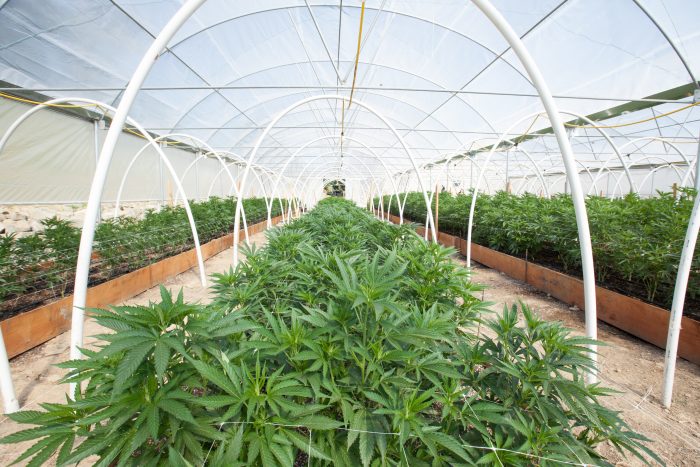Effective November 3, 2020, Arizona legalized the use of marijuana for recreational purposes under the Smart and Safe Arizona Act. Recreational marijuana is also commonly referred to as “adult use” cannabis to distinguish it from medical marijuana, which Arizona legalized under the Arizona Medical Marijuana Act in 2010.
The Arizona Department of Health Services (ADHS) is responsible for licensing and regulating both the adult use cannabis market and the Medical Marijuana Program.
Below you will find information regarding licensing procedures for marijuana establishments, nonprofit dispensaries, and dual licensees. We keep this page up-to-date when new information becomes available. Please note that this page is for informational purposes only and should not be considered legal advice.
Definition
In Arizona, a marijuana establishment license authorizes the license holder to function as an adult use cultivator, manufacturer, and dispensary.
Cultivators, also commonly referred to as growers or producers, are responsible for growing cannabis. Once harvested, mature plants are transferred to manufacturers.
Manufacturers—also known as processors—take harvested cannabis from cultivators and create derivative extracts for edibles, concentrates, topicals, and prepacks. Once finished, their products are transported to dispensaries.
Dispensaries sell cannabis and cannabis products in a legal, regulated setting. A marijuana establishment can operate:
- A single retail location where the license holder cultivates, manufactures, and sells cannabis and cannabis products to consumers.
- A single off-site cultivation location where the license holder cultivates, processes, and manufactures cannabis and cannabis products, but cannot directly transfer or sell to consumers.
- A single off-site location where the license holder manufactures, packages, and stores cannabis and cannabis products, but cannot directly transfer or sell to consumers.
Requirements
An individual can be an applicant, principal officer, or board member of more than one marijuana establishment. A marijuana establishment can be owned or operated by a publicly traded company, but cannot have any relationship with or financial interest in a marijuana testing facility, other marijuana business entity, or management company.
To qualify for certification, the principal officers or board members of a prospective marijuana establishment must be at least 21 years of age. Applicants will be disqualified from certification if they have:
- Committed an excluded felony offense.
- Served as a principal officer or board member of a marijuana establishment that had its license revoked.
All marijuana facility agents (i.e., principal officers, board members, and employees) must also be registered with the Arizona Department of Health Services (ADHS) before working at a marijuana establishment. Agents must be at least 21 years of age; anyone who has committed an excluded felony offense will be disqualified from consideration. To become registered, a prospective agent must submit their completed application, along with a nonrefundable application fee. They must also undergo a background check. A marijuana establishment can apply a registry card on behalf of a prospective agent.
If the ADHS determines that an applicant meets the criteria for registration, it will issue a marijuana facility agent card that is valid for two years.
Process
The ADHS will first conduct a background check on each person applying as an agent of a marijuana establishment. Each individual must submit their fingerprints to the ADHS for a state and federal criminal records check. The Department of Public Safety may exchange this fingerprint data with the Federal Bureau of Investigation. The ADHS will destroy each set of fingerprints after the check is complete.
Next, the prospective establishment must electronically submit a completed application and pay a nonrefundable application fee. Before application approval or denial, the ADHS may request an inspection that requires more than one visit to complete. The ADHS may also make written comprehensive requests for additional information. If the ADHS does not make a decision or notify the applicant within 60 days of an application’s submission, the applicant can initiate a special action in superior court to compel the ADHS to make a decision.
If the ADHS provides a notice of deficiencies to an applicant, it will include a list of the information or documents needed to complete the application. The applicant must then submit the missing information in the specified timeframe, otherwise the ADHS will consider the application withdrawn.
Once the ADHS approves an application, the applicant will receive their marijuana establishment license, which must be renewed every two years. The newly registered establishment must then open its doors within 18 months of application approval. The ADHS will make at least one unannounced visit annually to ensure that the establishment is complying with the Smart and Safe Arizona Act.
What kind of point-of-sale do I need to operate a Marijuana Establishment?
Most states require dispensaries to track and trace all of their cannabis-related products for regulatory and compliance reporting requirements. Our cannabis POS and inventory management system provides comprehensive seed-to-sale cannabis tracking with a focus on compliant data points. If your state requires seed-to-sale systems to stay compliant, BioTrack has you covered. Our system is customized to meet the unique regulatory frameworks in each and every state.
Definition
In Arizona, nonprofit dispensaries are not-for-profit entities that cultivate, manufacture, transport, and sell medical cannabis, related supplies, and educational materials to Medical Marijuana Registry cardholders.
Requirements
To qualify for certification, the principal officers or board members of a prospective nonprofit dispensary must be at least 21 years of age. Applicants will be disqualified from certification if they have:
- Committed an excluded felony offense.
- Served as a principal officer or board member of a nonprofit dispensary that had its registration certificate revoked.
All nonprofit dispensary agents (i.e., principal officers, board members, employees, and volunteers) must also be registered with the Arizona Department of Health Services (ADHS) before working at a nonprofit dispensary. Agents must be at least 21 years of age; anyone who has committed an excluded felony offense will be disqualified from consideration. To become registered, a prospective agent must submit their completed application, a nonrefundable application fee, and a signed statement pledging not to illegally divert cannabis. They must also undergo a background check. A nonprofit dispensary can apply for a registry card on behalf of a prospective agent.
If the ADHS determines that an applicant meets the criteria for registration, it will issue a nonprofit dispensary agent card that is valid for two years.
Process
The ADHS will first conduct a background check on each person applying as an agent of a nonprofit dispensary. Each individual must submit their fingerprints to the ADHS for a state and federal criminal records check. The Department of Public Safety may exchange this fingerprint data with the Federal Bureau of Investigation. The ADHS will destroy each set of fingerprints after the check is complete.
Next, the prospective dispensary must apply for certification. It must electronically submit a completed application, pay an application fee, and include the physical address of the dispensary and the physical address of one additional location (if any) where the cannabis will be cultivated.
The ADHS will either approve or deny an application within 90 days of its submission. If the ADHS grants registration, the applicant will receive a registration certificate—which must be renewed every 2 years—and a random identification number. The newly registered nonprofit dispensary must then open its doors within 18 months of application approval. The ADHS will make at least one unannounced visit annually to ensure that the nonprofit dispensary is complying with the Arizona Medical Marijuana Act.
A nonprofit dispensary’s cannabis cultivation must occur in an enclosed, locked facility, at a physical address that can only be accessed by registered dispensary agents. A nonprofit dispensary can also acquire usable cannabis or cannabis plants from a registered patient or designated caregiver, so long as the patient or caregiver receives no compensation in return. Cannabis cannot be consumed on dispensary property.
A nonprofit dispensary may receive payment to cover its operating expenses.
What kind of software do I need to operate a Nonprofit Dispensary?
Most states require dispensaries to track and trace all of their cannabis-related products for regulatory and compliance reporting requirements. Our cannabis POS and inventory management system provides comprehensive seed-to-sale cannabis tracking with a focus on compliant data points. If your state requires seed-to-sale systems to stay compliant, BioTrack has you covered. Our system is customized to meet the unique regulatory frameworks in each and every state.
Dual Licensees
In Arizona, a dual licensee holds both a nonprofit medical marijuana dispensary registration and a marijuana establishment license, selling medical and adult use cannabis at the same location.
An individual may be an applicant, principal officer, or board member of more than one dual licensee. A dual licensee can engage in any act, practice, conduct, or transaction allowed for a marijuana establishment, and is not required to employ or contract with a medical doctor.
A dual licensee can operate on a for-profit basis if it notifies the Arizona Department of Health Services (ADHS) and Department of Revenue, taking all necessary actions to enable its for-profit operation like changing its corporate form and amending its organizational and operating documents. A dual licensee that elects to operate on a for-profit basis is subject to taxes and is not required to submit its annual financial statements or audit reports to the ADHS to renew its nonprofit medical marijuana dispensary registration.
Marijuana Testing Facilities
A marijuana testing facility is an entity that analyzes the potency of cannabis and tests cannabis for harmful contaminants.
To apply for a marijuana testing facility license, an applicant that does not have a current laboratory registration certificate must electronically submit a completed application, a nonrefundable application fee, and the signatures of the owner and the technical laboratory director.
An entity that already holds a valid laboratory registration certificate issued by the Arizona Department of Health Services (ADHS) can apply for an marijuana testing facility license by electronically submitting:
- An attestation from each owner approving the application.
- The license number on the applicant’s laboratory registration certificate.
- A nonrefundable application fee.
A separate license is required for each unattached portion of a marijuana testing facility. The license must be renewed every two years.
What kind of software do I need to utilize these other license types?
Most states require dispensaries to track and trace all of their cannabis-related products for regulatory and compliance reporting requirements. Our cannabis POS and inventory management system provides comprehensive seed-to-sale cannabis tracking with a focus on compliant data points. If your state requires seed-to-sale systems to stay compliant, BioTrack has you covered. Our system is customized to meet the unique regulatory frameworks in each and every state.







